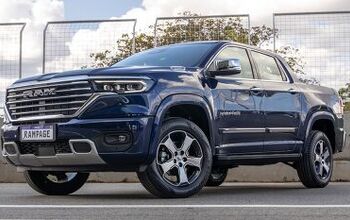Ask Jack: To Insure or Not to Insure?

I’ve never met filmmaker Spike Lee, and somehow I doubt the two of us would be friends if we did meet. Yet I’ve admired his work since seeing “She’s Gotta Have It” almost 30 years ago. More specifically, I’ve always admired the way Lee holds all of his characters to account for their actions, regardless of their color. In a business that treated African-Americans as alternately evil or magical, Lee gave them the freedom to be real people: flawed, damaged, inspirational.
His fifth film, Jungle Fever, has been politely ignored for the last couple of decades, largely because it asks questions that are no longer permissible to ask in our single-opinion modern media culture. At the time, however, it was intended to be a bold statement both of Lee’s status as a greenlight director and his willingness to use that status to put the audience in some deliberately uncomfortable situations. Part of that statement included having Stevie Wonder write an entire album’s worth of original music to serve as the soundtrack.
That album, too, has vanished into the Orwellian ether, partially because of the cringe-inducing title track, but mostly because the music didn’t meet the standards set by Stevie in the Seventies. There’s one exception: the ballad “Make Sure You’re Sure.” Joshua Redman was the first jazz musician to hop on the train, but he wasn’t the last.
Which brings us to today’s question: When it comes to a trackday, how sure do you want to be?
Chris writes,
I bought a 2007 Boxster with 153k miles for a really sweet price from the original owner and I am happy with it. I’ll put about 5,000 miles/year on it which most PCA members would consider daily driver kind of mileage. Considering all the Porsche horror stories I have heard; this has been a surprisingly trouble free ownership experience so far. I recently purchased new tires (and TPMS sensors – ugh). This weekend I’ll change the brake pads (Textar yellow box) and replace the rear rotors which are original and at the end of their service life. The front rotors had been replaced by the previous owner a few years back and have about 50 percent service life remaining.
Yesterday I signed up for a driver’s education event put on by the local PCA chapter. Other than the Ford ST Octane Academy, I’ve never done a track event before. My question is what do I need to get ready for the event?
Do I need to use special brake pads?
I don’t have a helmet but I’m under the impression that the club will let you rent/borrow a helmet for the weekend.
I’m assuming that HDPE track insurance is strongly recommended?
Anything else I should be aware of?
I’ll start by offering a link to one of my previous articles about trackday preparation. With that said, I have some Boxster-specific advice.
You can get Zimmerman stainless steel rotors and Pagid Orange brake pads for an ’07 Boxster for a total cost of under a grand. The pads should be swapped on at the track. The rotors can stay on all the time. Don’t waste money on OEM Porsche pads or rotors. It’s easy to get a whole season’s worth of driving out of the Pagids, particularly if you’re not driving at the proverbial limit all the time.
When in doubt, buy your own helmet. Loaner/rental helmets can have hidden damage and they may not fit properly. The nice people at Impact sell American-made full-face helmets for under five hundred bucks.
Now to the most interesting issue: trackday insurance. I’ve never bothered to buy it and I typically don’t suggest that my students buy it. To begin with, it’s remarkably expensive. A 2007 non-S Boxster can’t be worth any more than $10k, but it might cost $400 or $500 a weekend for a policy with a deductible of $1,000 or higher. Nor should a novice driving student ever be in a situation where he would total a car. Crashing cars at a track is something that shouldn’t happen unless you’re in an actual race or you are looking for the last half-a-second’s worth of lap time. If you pay attention to your instructor, and if you operate your vehicle with both care and caution, you shouldn’t ever get close to a contact incident.
Are there exceptions to the above? Sure, and most of them involve high-power daily drivers which have a significant loan outstanding. If you just bought a new Shelby GT350 and you’re still in hock to the bank for $50k, then by all means consider the insurance. But a 2007 Boxster is fundamentally a throwaway car. It’s not worth insuring. Take the money and put it in a jar instead. At some point, after a few years’ worth of track time, you’ll have enough money to buy a Corvette.
If Chris really wants trackday insurance, I won’t dissuade him any further — but in that case, he should thoroughly investigate the company providing the insurance. Ask them all the hard, embarrassing questions. When do I get paid? How does my car get taken to the body shop from track? What if I hit another driver? What if I injure my instructor? These are all questions that should be answered before the crash. Like the man says — make sure you’re sure.

More by Jack Baruth
Latest Car Reviews
Read moreLatest Product Reviews
Read moreRecent Comments
- Akila Hello Everyone, I found your blog very informative. If you want to know more about [url=
- Michael Gallagher I agree to a certain extent but I go back to the car SUV transition. People began to buy SUVs because they were supposedly safer because of their larger size when pitted against a regular car. As more SUVs crowded the road that safety advantage began to dwindle as it became more likely to hit an equally sized SUV. Now there is no safety advantage at all.
- Probert The new EV9 is even bigger - a true monument of a personal transportation device. Not my thing, but credit where credit is due - impressive. The interior is bigger than my house and much nicer with 2 rows of lounge seats and 3rd for the plebes. 0-60 in 4.5 seconds, around 300miles of range, and an e-mpg of 80 (90 for the 2wd). What a world.
- Ajla "Like showroom" is a lame description but he seems negotiable on the price and at least from what the two pictures show I've dealt with worse. But, I'm not interested in something with the Devil's configuration.
- Tassos Jong-iL I really like the C-Class, it reminds me of some trips to Russia to visit Dear Friend VladdyPoo.


































Comments
Join the conversation
Part of why I love tracking motorcycles. My bike is worth about the $3K I paid for it. If I could not afford to eat that I wouldn't go. Crashes are rare, and generally painless and due to operator error. And even more beautifully, for about half the cost of a car track day policy, I can just rent a new bike for the track. Imagine paying $200 to have the sports car of your choice for a whole track day! Nuts. Obviously the likelihood of things going pear shaped for me physically are higher, but what's life without risk? I haven't used a condom since the towers fell and I'm clean as a whistle. Calculated risk is manageable.
I spent $200 to insure my brand new (3-week old) Scion FR-S before tracking it. I crashed it on the second day with the PCA in the rain. Insurance covered everything. Money well spent. Don't go on track with a car you're not willing to set on fire, push over a cliff, and walk away from. I no longer drive my own cars on track (fortunately other people are stupid enough to let me, and sometimes even pay me, to drive their cars).